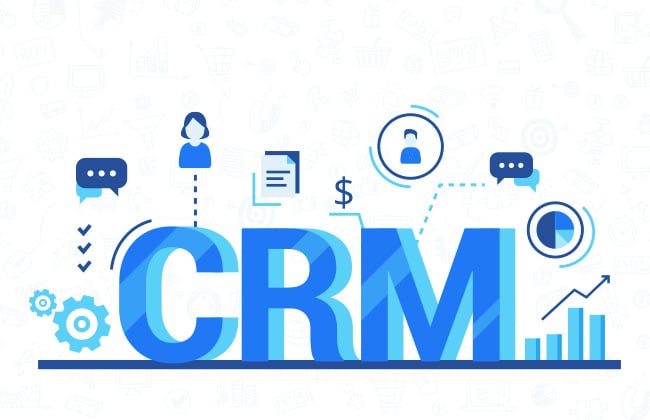With the proliferation of business all over the world, the competition for clients is ever-increasing. Businesses have to use innovative and effective means of marketing their products and services as a result. One of the methods that are gaining popularity in the commercial world is customer-relationship management (CRM). But, what is CRM?
IMAGE: PEXELS
Customer Relationship Management
This is a collective term used to refer to strategies, technologies, and practices that business use to collect, process, and manage client interactions and data with an aim of retaining existing customers as well as attracting new ones and increasing sales.
In most cases, CRM is used in reference to software that analyzes the behavior and preferences of customers with an objective of retention and driving sales.
Features Of A CRM Tool
Initially, CRM tools only collected basic customer details into a database accessible by businesses. The technology, however, has since advanced and now this software can record customer interactions, automate processes and track the performance of businesses.
The following are some of the functionalities available in most of the modern CRM tools.
Marketing Automation
The function of this feature is to make a business more productive by automating marketing techniques. For instance, a CRM tool can periodically update both existing and prospective customers about new products and services. Mostly, this is done using emails and social media platforms.
Sales Automation
Using customer interaction data, CRM tools can automate certain processes in the stage cycle with the goal of attracting new customers and retaining the current ones.
Customer Care Automation
For most businesses, it impossible to handle all customer requests, especially calls and emails. Modern CRM tools ease the task of handling client requests and queries by enabling companies to create pre-recorded audios and automatic email responses. This means that contact center agents only handle tasks that are beyond the capability of the CRM.
Location-Based Services
With CRM, it is possible for firms to create marketing campaigns targeting specific geographical locations. This is because such tools leverage the geolocation capability of GPS apps. Also, this technology can be used to grow a company’s client network.
Human Resource Management
CRM tools allow businesses to track the performance of individual employees. As a result, the companies are able to identify redundant individuals within the workforce and lay them off. Likewise, employees are compelled to work harder, making the business more profitable.
Data Analytics
Customer data would be useless without a proper analytics tool. Luckily, most CRM software has inbuilt analytics engines that process such data and assist users in creating effective marketing campaigns.
AI Integration
In an era where the use of AI is gaining traction, CRM tools have not been left behind. This powerful technology is used to automate repetitive tasks, streamline mundane activities and most importantly, to analyze and predict the future buying behavior of existing and would-be clients.
Types Of CRM Solutions
There are four variations of CRM tools, based on how they are implemented. These include:
Outsourced CRM
As the name suggests, a third-party hosts and services a CRM tool on behalf of a business. This model is mostly used in cases where a CRM solution is needed promptly and the involved business does not have the necessary infrastructure to host such a solution.
Off-The-Shelf CRM
Most of the existing CRM tools integrate seamlessly with the majority of business software platforms. Off-the-shelf CRMs are usually the cheapest, but their disadvantage is that they may not deliver to the desired precision. Therefore, they are best suited for a business that is willing to compromise specialization for affordability.
Customized CRM tools
These are made to fit the requirements of specific businesses. For this reason, they are often expensive and take longer to develop. In return, the user enjoys the benefits of having a solution that perfectly complements their business. The cost of customized CRM depends on the level of personalization requested by the business.
Managed CRM
This is a blend of outsourced and custom-made CRM solutions. It involves sharing a customized CRM with other businesses. Although it lowers the maintenance costs. This approach can adversely impact the effectiveness of a CRM solution.
Implementation Of CRM
The ultimate goal of deploying CRM strategies and tools is improving the performance of a business. To achieve this, a business should follow the steps below.
Data Collection And Storage
Collecting user information is vital in identifying their buying behavior. After this, the data should be stored in a centralized database that is accessible to all staff in an understandable format.
Data Analysis
Analyzing vast amounts of user data can be tedious. However, modern CRM tools simplify these tasks using their analytics engines that scour through the voluminous information and create patterns and relationships. From here, the staff can formulate effective marketing tactics.
Effective Marketing
The data analysis reports generated by CRM tools enable businesses to have a better understanding of the desires of specific customer groups. This information is then used to create advertisements that are likely to appeal to clients.
Improving Customer Relations
In addition to identifying the specific needs of customers, CRM tools can equally recognize the most frequent complaints by customers. This enables businesses to resolve their weaknesses and thereby improve relationships.
Advantages Of CRM
Better ROI
Effective marketing allows business to target specific customer groups. This means that marketing budgets are optimized, resulting in better ROI.
Sales Forecasting
Companies, with the help of CRM tools, can analyze historical sales data and anticipate the future behavior of their customers.
Easy Contact Management
As mentioned earlier, modern CRM tools can record all interactions made between a business and their customers. Because customer details are also stored, it is easier to contact them in the future if needed.
Increased Productivity
CRM takes over repetitive task such as marketing emails, allowing company staff to focus on other critical activities. In turn, the business becomes more productive.
Improved Sales Metrics
Ability to zero on leads that matter is perhaps the most important advantage of CRM. With a better understanding of clients, sales are guaranteed to improve.
If you are interested in even more business-related articles and information from us here at Bit Rebels then we have a lot to choose from.


COMMENTS